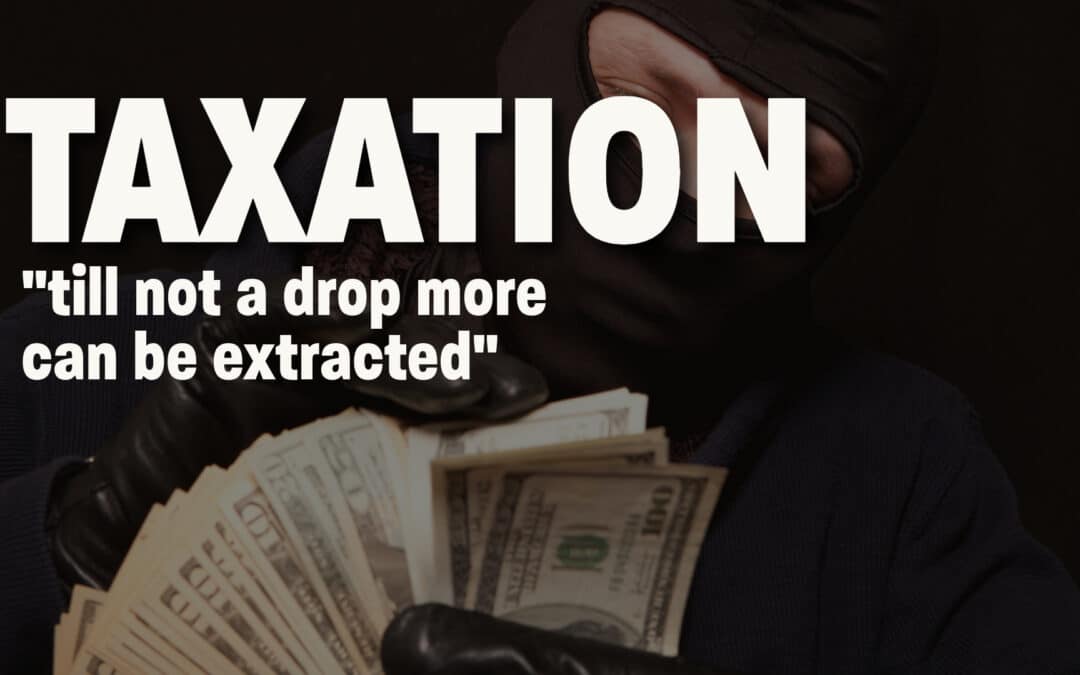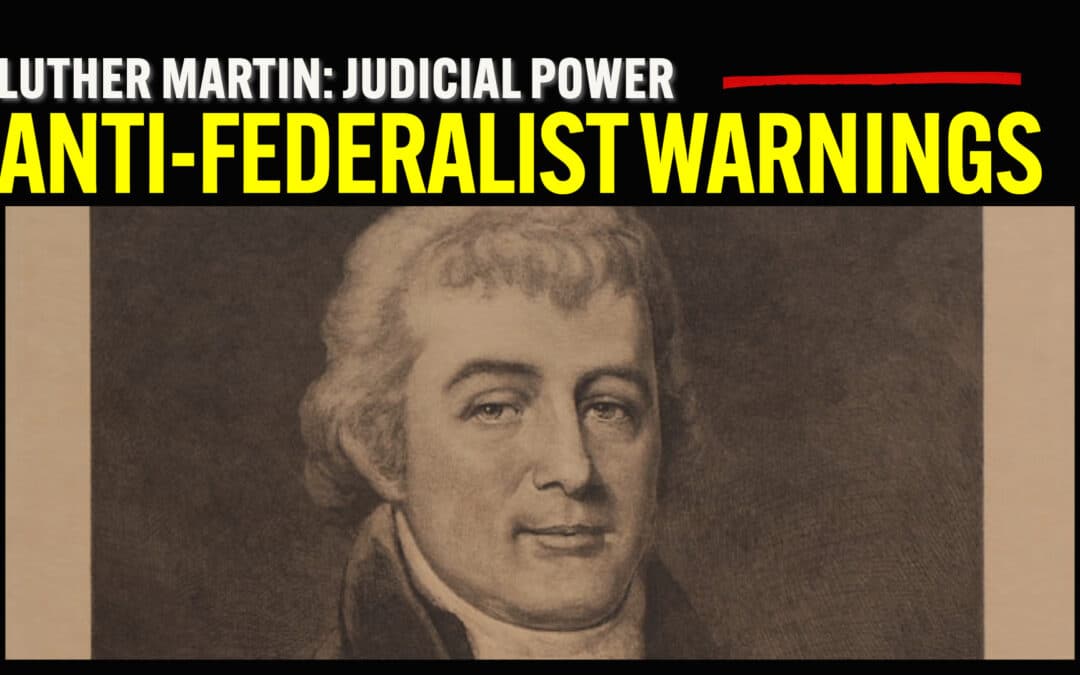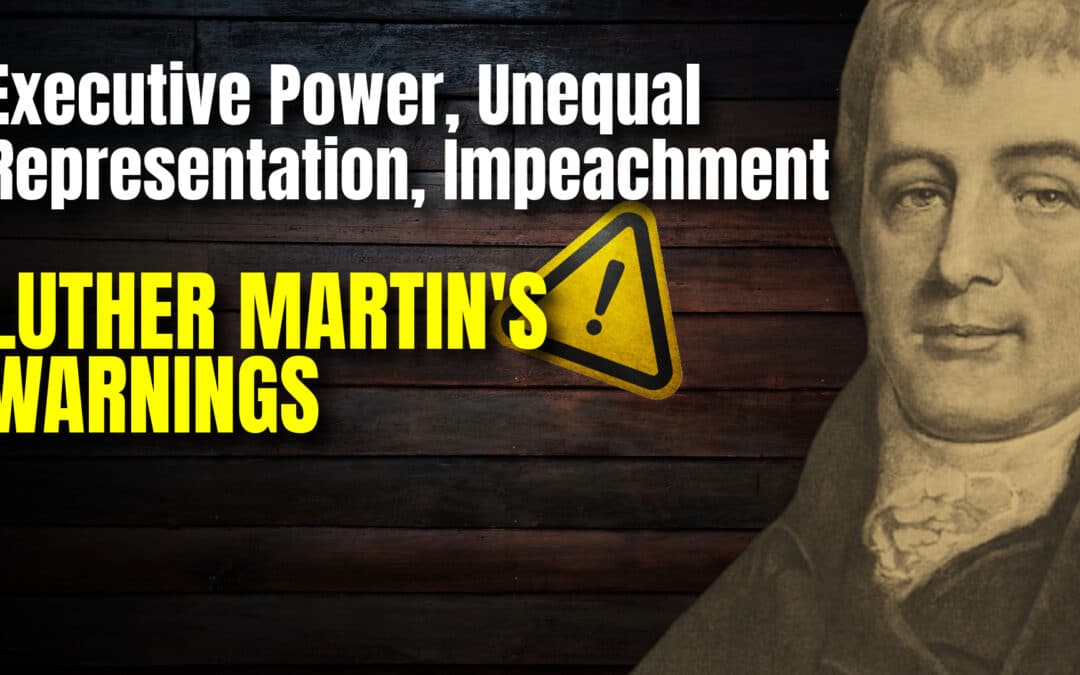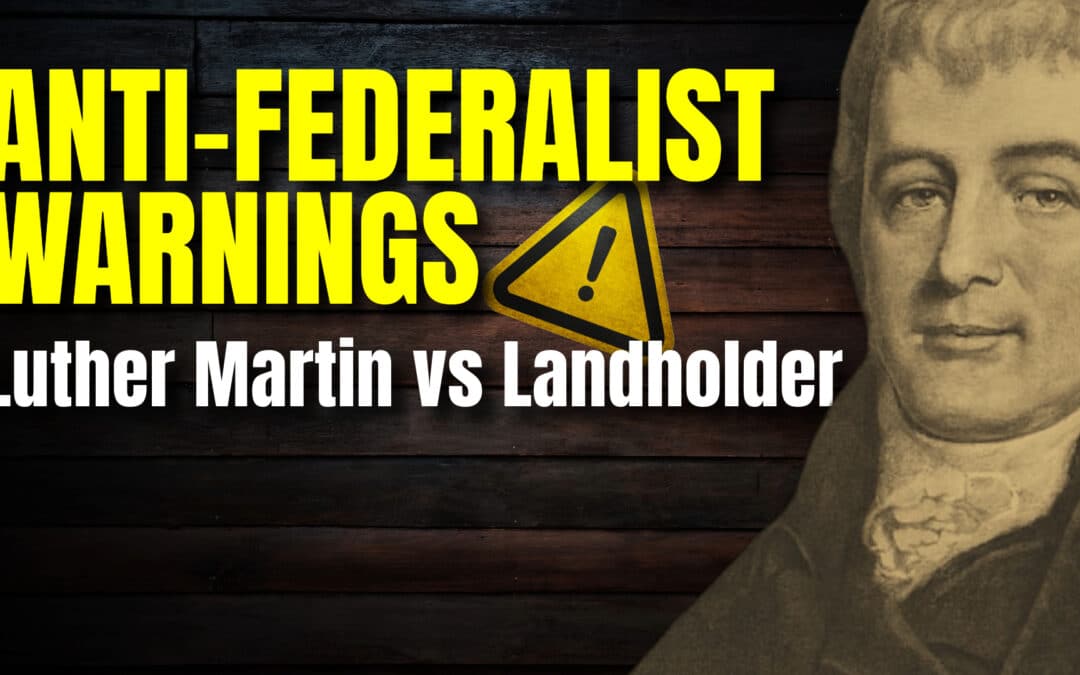
AntiFederalists


Were the Anti-Federalists Right?
“A monarchy, or a corrupt, tyrannical aristocracy” That’s what George Mason predicted we’d get under the constitution. And he was far from alone. The Anti-Federalists repeatedly warned that the constitution wouldn’t actually create a federal union....
Taxing Power: Luther Martin’s Anti-Federalist Warnings
Luther Martin believed the Constitution’s sweeping taxation power was one of its most dangerous features, a direct threat to both state sovereignty and individual liberty. Long before the Sixteenth Amendment and the rise of federal income taxes, Martin warned that the...
Three Pillars of Power: Luther Martin’s Anti-Federalist Warnings
Luther Martin warned that the Constitution would create a centralized national government with few real restraints – one that would steadily erode state sovereignty, override local control, and impose its will under the guise of law. In his essay Genuine...
Luther Martin’s Warning: Executive Power, Unequal Representation, and the Illusion of Impeachment
Luther Martin feared that the Constitution was not a blueprint for liberty, but rather a framework for centralized control that threatened state sovereignty. He hammered this point home in Genuine Information, criticizing unequal representation in Congress, condemning...
